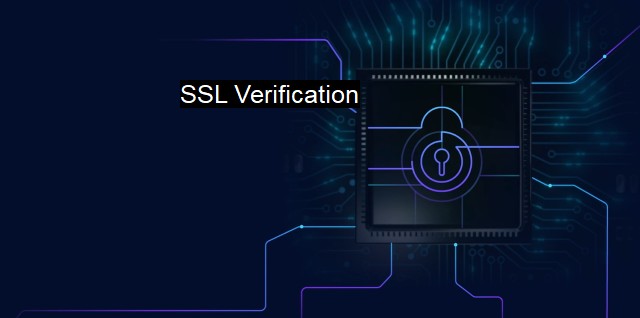What is SSL Verification?
The Importance of SSL Verification for Secure Communication and Antivirus Measures
In the paradigm of cybersecurity and antivirus, one term that has significantly grown in prominence over the past few years is "SSL Verification". This critical component is thoroughly integrated into the fabric of modern internet usage to emulate security, privacy, data integrity for both websites and users' personal information."SSL" is the acronym for Secure Sockets Layer. This cryptographic protocol was developed by Netscape Communications to provide secure communications on the internet. Later versions of SSL were renamed Transport Layer Security (TLS), but the term "SSL" is still in common use. SSL provides a secure channel between two machines or devices operating over the internet or an internal network, widely used by online businesses and individuals to reduce the risk of sensitive information (e.g., credit card numbers, usernames, passwords, emails etc.) from being stolen or tampered with by hackers and identity thieves. SSL allows for a private "conversation" just between the two intended parties.
SSL Verification is the process of verifying the SSL certificate of a server. Fundamentally, SSL verification ensures that the SSL certificate being used on a server or website is valid, unexpired, and trustworthy. From the server's perspective, SSL verification is an example of authenticating an entity's identity. The main purpose of an SSL certificate is to ensure that the data exchanged online remains confidential and protected.
The generation of an SSL certificate includes a "public key" and a "private key". The SSL certificate contains the public key needed to initiate the secure session. During SSL verification, the client checks the certificate against a list of trusted Certificate Authorities (CA) and confirms that the certificate is unexpired and that its common name is valid for the server that it is connecting to.
Once the confirmation is made, a validation status is issued to communicate a successful SSL verification. If the validation status produced any warnings or error messages, the client may choose to break off communication to avoid any potential security threat – albeit, better security comes at the cost of some decrease in efficiency and speed of communication.
While SSL verification provides its protective edge, it's worth mentioning that all SSL certificates contain identification information. When a browser or system attempts to connect to a website, the website's SSL certificate is checked for validity. The details of which can be accessed by anyone clicking the padlock symbol in their web browser.
SSL Verification plays an important role in the realm of cybersecurity. It gives assurance to the users that their connection is secure and the other party is the actual owner of the website, not an imposter posing as a legitimate site. By ensuring the safe transmission of information online, it aids in improving overall network security and reducing the risk of cyber threats such as hacking and phishing attacks.
SSL Verification also plays an important role in fostering trust between the website owner and their visitors. Sites that have enabled SSL, and hence show a padlock icon in the browser, generate far more trust than those that don't. A secondary layer of this trust building behaviour lies in Extended Validation SSL Certificates (EVSSL) services, which displays the company name in green in the bar made available through the certificate.
In preparation for any cybersecurity threat, the simple process of making sure SSL certificates are issued by a reliable Certificate Authority and are properly verified can make a huge difference. Attacks that steal or modify data transmitted over the Internet remain one of today's most potent threats to businesses. Using SSL Verification to provide Consumer-to-Business or Business-to-Business communication and transactions is a sure frontline against these malware exploits. Always remember, where there is encryption, there is data security.

SSL Verification FAQs
What is SSL verification?
SSL verification is a process of confirming the identity of a website or online service by verifying the SSL certificate presented by the server. It ensures that the website or service is legitimate and secure.Why is SSL verification important in cybersecurity?
SSL verification is crucial in cybersecurity because it helps prevent Man-in-the-Middle (MITM) attacks where hackers intercept and modify data transmitted between users and a web server. It also ensures that users are not visiting malicious websites that can steal their personal and sensitive data.What happens if I ignore SSL verification warnings on my antivirus software?
Ignoring SSL verification warnings on your antivirus software puts your device and sensitive data at risk of being compromised by cybercriminals. It is essential to take these warnings seriously and avoid visiting websites with invalid SSL certificates.How can I check if a website's SSL certificate is valid?
You can check if a website's SSL certificate is valid by looking for a padlock symbol in the address bar of your web browser. If the padlock is closed, then the website has a valid SSL certificate. You can also click on the padlock symbol to view the details of the SSL certificate and verify its authenticity.| | A | | | B | | | C | | | D | | | E | | | F | | | G | | | H | | | I | | | J | | | K | | | L | | | M | |
| | N | | | O | | | P | | | Q | | | R | | | S | | | T | | | U | | | V | | | W | | | X | | | Y | | | Z | |
| | 1 | | | 2 | | | 3 | | | 4 | | | 7 | | | 8 | | |||||||